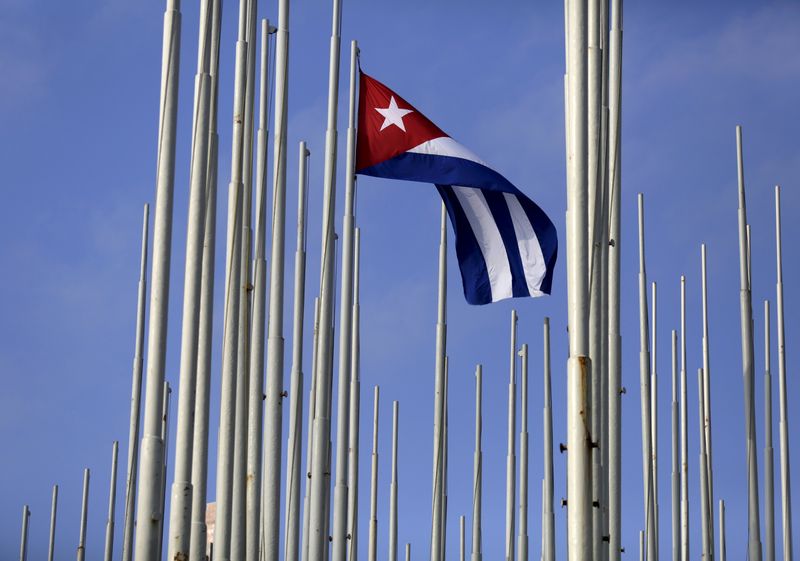By Daniel Trotta
WASHINGTON (Reuters) - Cuba and the United States reported making progress toward restoring diplomatic relations following two days of talks and pledged on Friday to continue informal negotiations in the coming weeks.
The chief U.S. negotiator said the two sides may not need another formal round of talks to reach agreement, indicating major differences had been resolved.
If the former Cold War rivals ultimately reach a deal to end more than half a century of estrangement, it would fulfill a pledge they made five months ago when U.S. President Barack Obama and Cuban President Raul Castro announced detente.
The so-called interests sections in Washington and Havana could be upgraded to embassies, and ambassadors could be named in place of the current chiefs of mission. Washington severed diplomatic relations with Cuba in 1961, soon after Cuba's revolution that steered the island into alliance with the Soviet Union and decades of hostility with its northern neighbor.
"We have made significant progress in the last five months and are much closer to reestablishing relations and reopening embassies," Roberta Jacobson, the U.S. assistant secretary of state for Western Hemisphere affairs, told reporters after two days of talks at the State Department.
Since Obama and Castro's landmark announcement in December, the two sides have met twice in Havana and twice in Washington, and the two presidents have also met for talks during a regional summit in Panama in April.
The chief Cuban negotiator, Josefina Vidal, also reported progress had been made.
Neither side gave details publicly although Vidal, the director of U.S. affairs at the Cuban Foreign Ministry, said they had discussed "aspects related to the functioning of embassies and the behavior of diplomats," a reference to two areas of difference.
Cuba, wary of outside efforts to change its one-party Communist system, has objected to U.S. training courses in journalism and information technology given at the U.S. interests section in Havana, saying they violate the Vienna Convention ban on diplomats interfering in the internal affairs of a host nation.
Cuba, which tightly controls its media and blocks websites run by independent journalists, views the courses as subversive.
The Americans want freedom of movement for their diplomats, who are banned from traveling outside Havana without permission.
One important Cuban demand was to be removed from the U.S. list of state sponsors of terrorism, a designation that imposed sanctions on some companies doing business with Cuba.
Obama announced on April 14 he would take Cuba off the list, subject to a congressional notification period that ends on May 29.

That has allowed Cuba to once again find a bank to handle its accounts in the United States. Cuba reached a deal with Stonegate Bank of Florida.